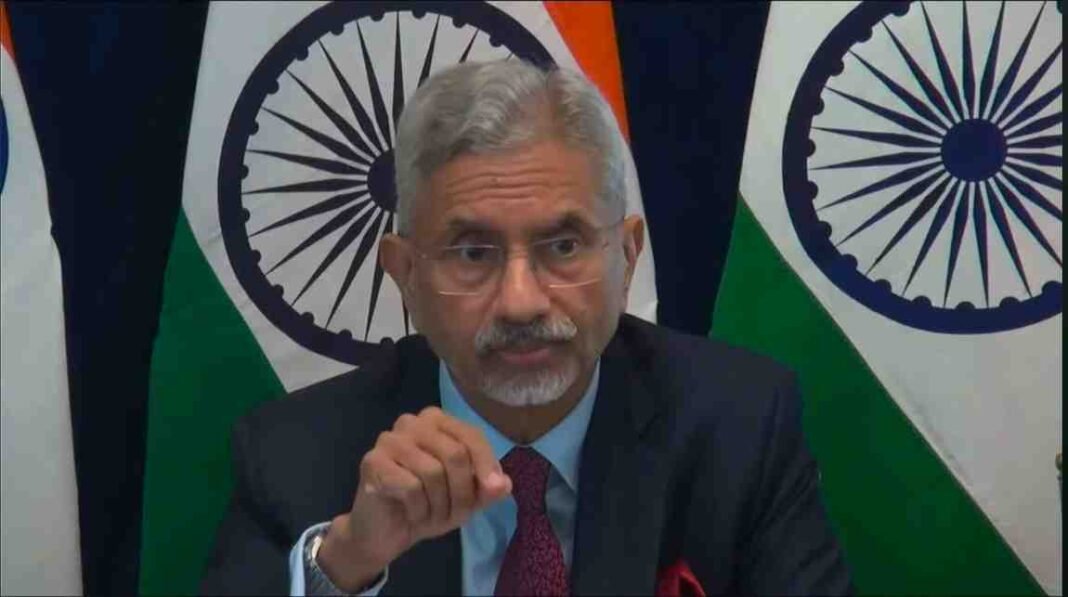External Affairs Minister Dr. S. Jaishankar has said that India is closely monitoring legislative developments in the United States, particularly the proposed sanctions bill that could impose a 500% tariff on imports from countries purchasing Russian oil and related products.
Highlighting India’s strategic interest in energy security, Jaishankar affirmed that the government has conveyed its concerns to key American lawmakers. Addressing a press conference, Jaishankar remarked, “Any development in the US Congress that affects or could affect India’s interests is naturally of significance to us. Our embassy and ambassador have been in touch with Senator Lindsey Graham. We have expressed our concerns and made our position on energy security very clear.”
The bill in question, introduced by Republican Senator Lindsey Graham, proposes sweeping sanctions aimed at deterring purchases of Russian oil, gas, uranium, and other commodities. According to The Hill, the legislation has garnered support from over 80 co-sponsors in the US Senate, potentially making it resilient to a presidential veto.
Senator Graham’s proposal comes in the wake of the ongoing Russia-Ukraine conflict, which began in February 2022. While the United States and its allies imposed heavy sanctions on Moscow in response to the war, India has continued its oil trade with Russia, citing the need to ensure affordable energy access for its 1.4 billion citizens.
The proposed legislation seeks to levy a 500% tariff on imports from any country engaging in trade with Russia in key sectors. However, Graham has indicated that there may be exceptions.
He is reportedly working on provisions to exempt countries that are actively contributing to Ukraine’s defense from the punitive tariffs. This potential carveout is under discussion, with details yet to be finalized.
In response to a question about whether the bill is being coordinated with former US President Donald Trump, Graham clarified that while they are in discussions, the two remain independent entities.
“We are separate entities coordinating with each other,” he said, noting that some Republican lawmakers are holding back on advancing the bill until Trump formally endorses it.
In May, Graham confirmed that discussions with Trump regarding the bill were underway. The delay in moving the legislation forward stems in part from internal GOP consultations, with many legislators reportedly awaiting Trump’s go-ahead before proceeding in Congress.
Dr. Jaishankar refrained from speculating on the bill’s outcome but acknowledged its potential impact on India. “We’ll have to cross that bridge when we come to it, if we come to it,” he said, underscoring a wait-and-watch approach.
India’s continued purchase of Russian oil has come under scrutiny from several Western quarters, but New Delhi has maintained that its decisions are guided by national interest and the imperative of affordable energy.
Government officials have consistently emphasized that India does not support the war but remains committed to ensuring uninterrupted energy supplies amid global volatility.
The Indian government has also pointed to the broader context of developing economies navigating energy challenges while managing post-pandemic recovery.
Officials argue that unilateral sanctions, particularly ones that may have extraterritorial implications, need to consider the legitimate energy needs of countries like India.
This latest development adds another layer of complexity to global energy diplomacy and India-US relations. While Washington and New Delhi continue to deepen ties in multiple strategic areas—from defense to technology—such legislative proposals highlight the occasional friction between national policy objectives and international alignments.
India’s foreign policy approach has emphasized strategic autonomy, allowing the country to engage with diverse partners while safeguarding its core interests. As the US Senate deliberates the sanctions bill, New Delhi will continue its diplomatic engagements to ensure that its energy security and economic interests are not compromised.
For now, the future of the bill remains uncertain. Its strong bipartisan backing suggests momentum, but the absence of a formal endorsement from Trump, coupled with potential carveouts, could influence its final shape.
Indian officials remain in dialogue with US lawmakers and are expected to step up efforts to ensure that any future legislation recognizes India’s unique energy position and strategic considerations.








